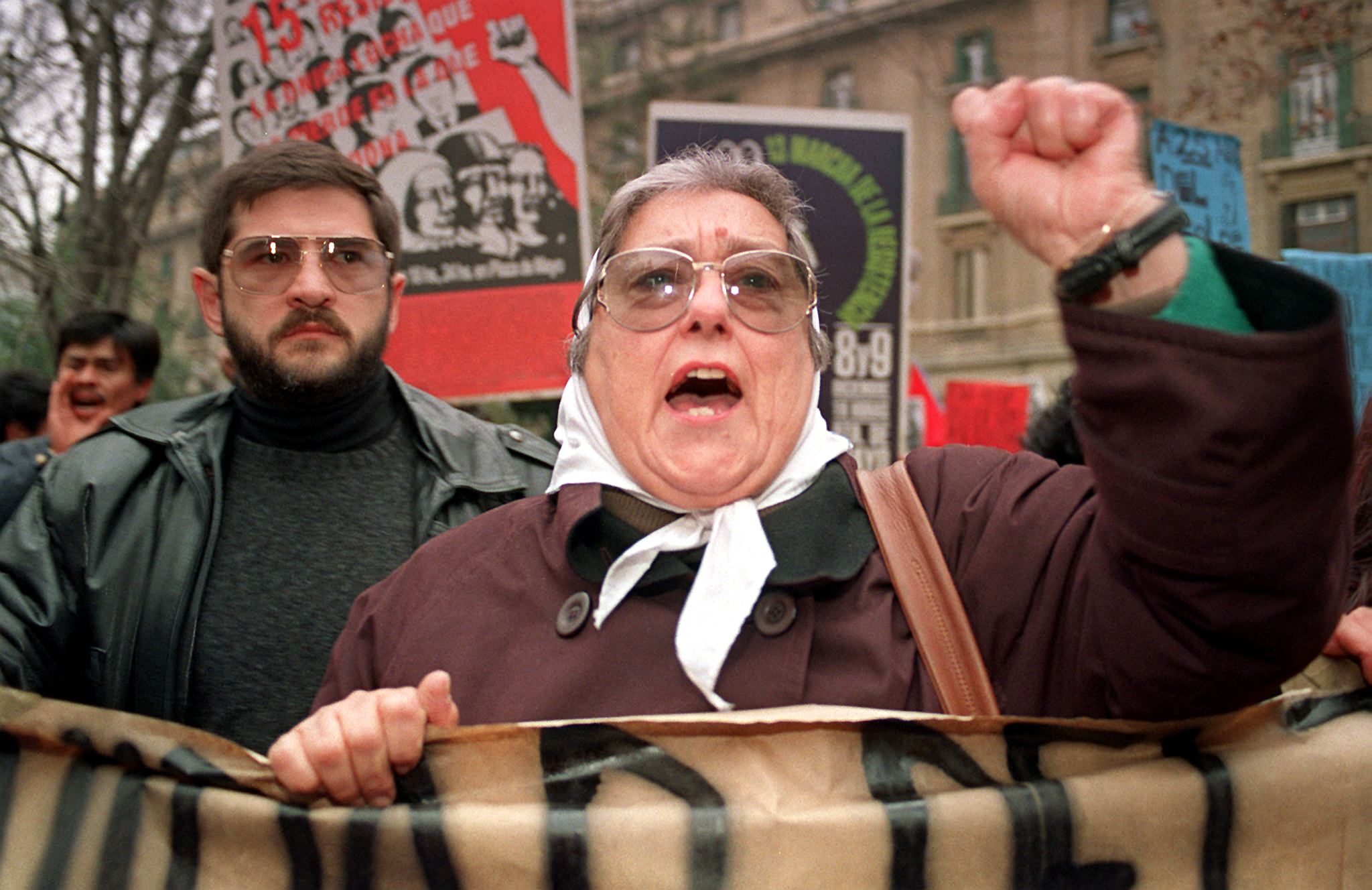What a late Argentine activist can teach us about the complex nature of protest
Hebe de Bonafini died at the age of 93 after a lifetime of campaigning, writes David Harding


Hebe de Bonafini died at the weekend. You may not have heard of her but it was some life she lived. She died at the age of 93, after a lifetime of campaigning.
Ms Bonafini was one of the founders of the Mothers of Plaza de Mayo, the internationally lauded human rights group that came together out of tragedy and went on to bring huge pressure on Argentina’s far-right military rulers in the 1970s and 1980s.
Her two sons were taken by the vile military regime led by Jorge Rafael Videla, the man who had the look of a provincial accountant but was a stone-cold killer.
He helped institute the “Dirty War”, a period of horrendous state terror against political opponents that led to as many as 30,000 Argentinians dying or disappearing. The regime seemed to take delight in the way people were killed, throwing many victims from planes or helicopters.
Two of those among the thousands to disappear were Ms Bonafini’s sons, who vanished in 1977. They were never found.
Her response was to establish the Mothers group, women who would protest weekly outside the president’s palace in Buenos Aires, wearing children’s nappies on their heads to symbolise the missing. Their campaign became so well-known it led to international protests against Videla and his regime, including – appropriately at this time – a call for a boycott of the 1978 World Cup, hosted by Argentina.
The Mothers campaigned until the regime fell in 1983, and then Ms Bonafini began calling for wholesale change, not just a single, if heartrending, cause.
In doing so, she showed the complex nature of protest and how people treated as heroes might be viewed differently by others. She said she felt “happiness” at the events of 9/11 because many “felt that the blood of so many in that moment were avenged”. She pointed to Western military actions but her remarks were also seen as a reference for US support for Videla.
She was accused of antisemitism for her attacks on an American journalist, said Pope John Paul II would “go to hell”, attacked Bolivians in Argentina, and was prosecuted for misappropriation of housing funds. She was also criticised for her close ties to former presidents Nestor Kirchner and Cristina Fernandez, who called her “a global symbol of the fight for human rights” and “pride of Argentina”.
Yours,
David Harding
International editor



Join our commenting forum
Join thought-provoking conversations, follow other Independent readers and see their replies
Comments